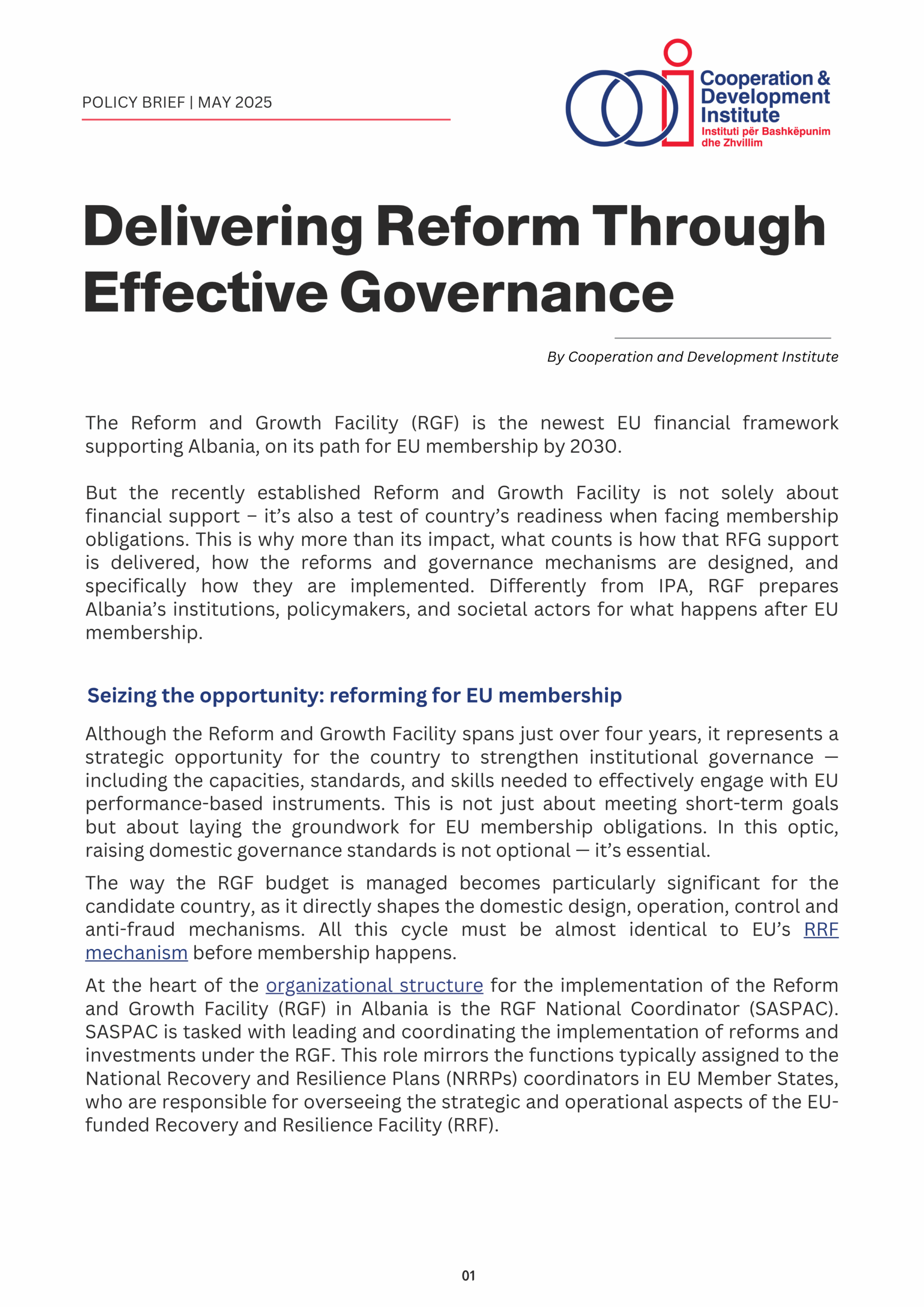EU Candidate Country Reforms and the New Enlargement Methodology: Searching For a Roadmap

Albania in the Berlin Process: Monitoring the Connectivity Agenda
March 21, 2020
Frontloading Conditionality: The EU Council Track Record Table for Albania
April 21, 2020An increasing involvement of Member States in the EU Accession process is the new defining trait of Enlargement. Member states are focused in the progress of reforms and actively engaged in setting benchmarks, monitoring their progress and providing technical assistance on the ground. The latest Enlargement methodology published in February 2020 has officialized this trend. But while the EU Commission applies its chapter-based methodology, Member States have a tendency to focus on the progress of reforms, to include a high degree of political conditionality, and to apply the conditionality before the official opening of Accession Negotiations as in the case of Albania and North Macedonia.
This development brings to the fore the importance of the implementation of the acquis (vs. the adoption) and the functioning of reformed local institutions (vs. the institution building). Aiming to avoid any backsliding, EU has included the “Rule of Law” and “Functioning of Democratic Institutions” in the Cluster of Fundamentals, acknowledging the necessity of higher scrutiny during the implementation phase and on the good governance component.
The next challenge remains the design and implementation of the respective roadmap for the Rule of Law and for Functioning of Democratic Institutions. In that regards, Justice Reform in Albania provides a unique experience where Enlargement is intertwined with the country institutional reforms, and where EU Member States have taken a leading role in the scrutiny of the progress towards EU membership
Tags: European Union , Western Balkans , EU integration, Reforms





National Parliament and the Reform Agenda 2024-2027
Read more